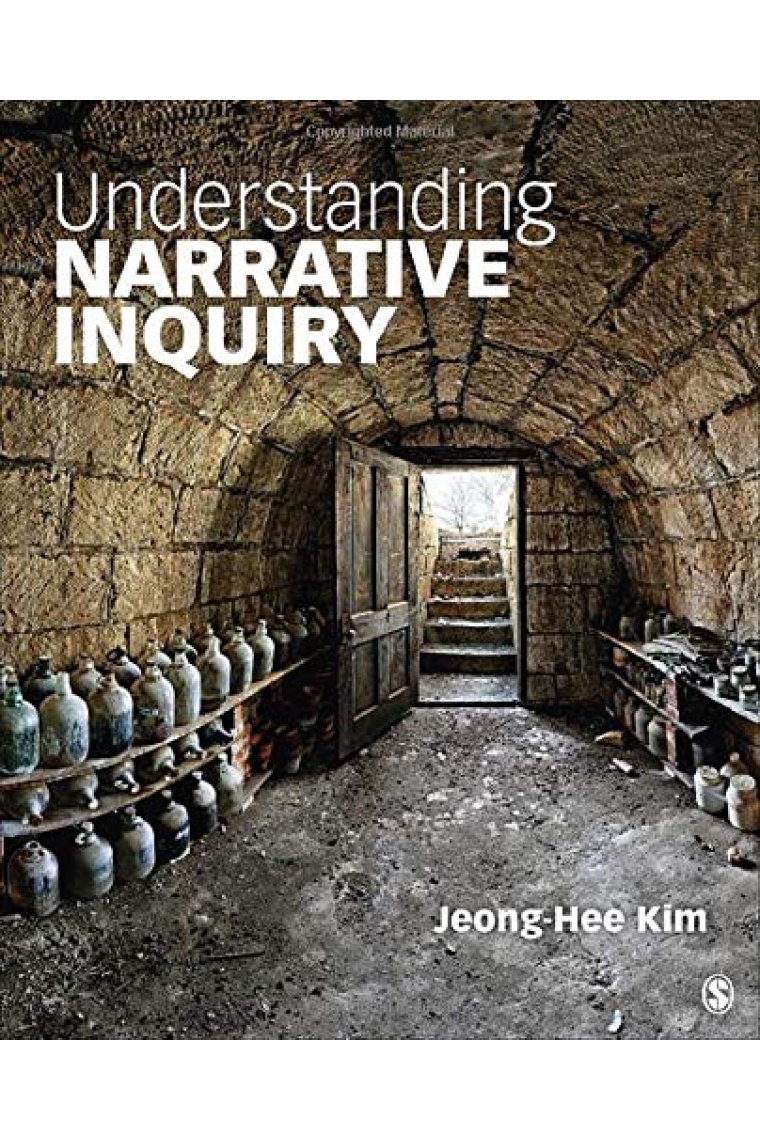This is a thorough and inclusive book that can serve as an excellent introduction to narrative forms of qualitative research in the fields of education, medicine, psychology, and legal studies. But
Understanding Narrative Inquiry may also serve to extend the knowledge of researchers and practitioners in those fields who are already familiar with this rapidly maturing inquiry approach. Extremely well researched and referenced, it deftly addresses sophisticated theoretical and philosophical underpinnings of narrative research, including the rationales and justifications for engaging in both storytelling and the analysis of stories. And it also explores a wide variety of helpful strategies for interviewing, fieldwork, and writing. But just as importantly, it grounds and humanizes its sophisticated scholarship through an inviting, conversational style replete with personal anecdotes, while its many concrete examples of research practice in action further enhances its usefulness. A remarkable achievement. -- Tom BaroneThis is an outstanding text on narrative inquiry. Kim offers the historical and philosophical context for narrative research, ample methodological instruction, and robust examples, making this a truly comprehensive text. I am particularly impressed with her attention to the different genres of narrative including arts-based and visual-based. This is a must-read for anyone interested in narrative research. -- Patricia LeavyJeong-Hee Kim masterfully positions readers to enter the storied fabric of human life through the medium of narrative inquiry. Readers across all disciplines and interests will find themselves locating and articulating the textured significances of stories as research. Philosophical/theoretical connections substantively frame and permeate the text with readers importantly gaining context, language, and capacities to design and undertake fitting narrative inquiries. The concrete examples depicting a cross section of genres and the inclusion of a glossary make this comprehensive text an invaluable resource for all interested in crafting and analysis of research through narrative inquiry. -- Margaret Macintyre LattaThis text offers novice and practicing scholars of narrative inquiry provocative philosophical and methodological insights. The text is beautifully written and draws on art, music, religion, philosophy, and literature to inform researchers? understandings. -- Mary Louise GomezThe author?s use of a conversational tone?as if she is talking directly to her students?while guiding the reader through complex theoretical material is noteworthy, as are the expertly designed "Questions for Reflection" and the "Activities" sections at the end of each chapter. This text will be of interest to anyone teaching Qualitative Research Methods looking for ways to engage their graduate students. -- Thalia M. Mulvihill
Biografía del autorJeong-Hee Kim is a Professor of Curriculum Studies in the Department of Curriculum and Instruction at Texas Tech University. Kim is a curriculum theorist, teacher educator, and narrative inquiry methodologist. Her research centers on various epistemological underpinnings of curriculum studies, focusing on phenomenological and hermeneutical ways of understanding the field of curriculum studies and teacher education. She has received two awards?Outstanding Narrative Research Article in 2007 and Outstanding Narrative Theory Article in 2009?from the Narrative Research (Special Interest Group) at the American Educational Research Association (AERA). She has also received the Faculty Excellence in Research/Creative Activities Award from the College of Education at Kansas State University in 2011. Her recent publications can be found in the Journal of Curriculum Studies, International Journal of Qualitative Studies in Education, and Educational Philosophy and Theory. She currently teaches graduate courses on curriculum theory, narrative inquiry, and action research in education.
 ¡Gracias por comprar en librerías reales!
¡Gracias por comprar en librerías reales!

 Lo mejor de noviembre
Lo mejor de noviembre  Alibri Llibrería, Barcelona
Alibri Llibrería, Barcelona
 Librería Lé, Madrid
Librería Lé, Madrid
 Caselles Llibrería, Lleida
Caselles Llibrería, Lleida








